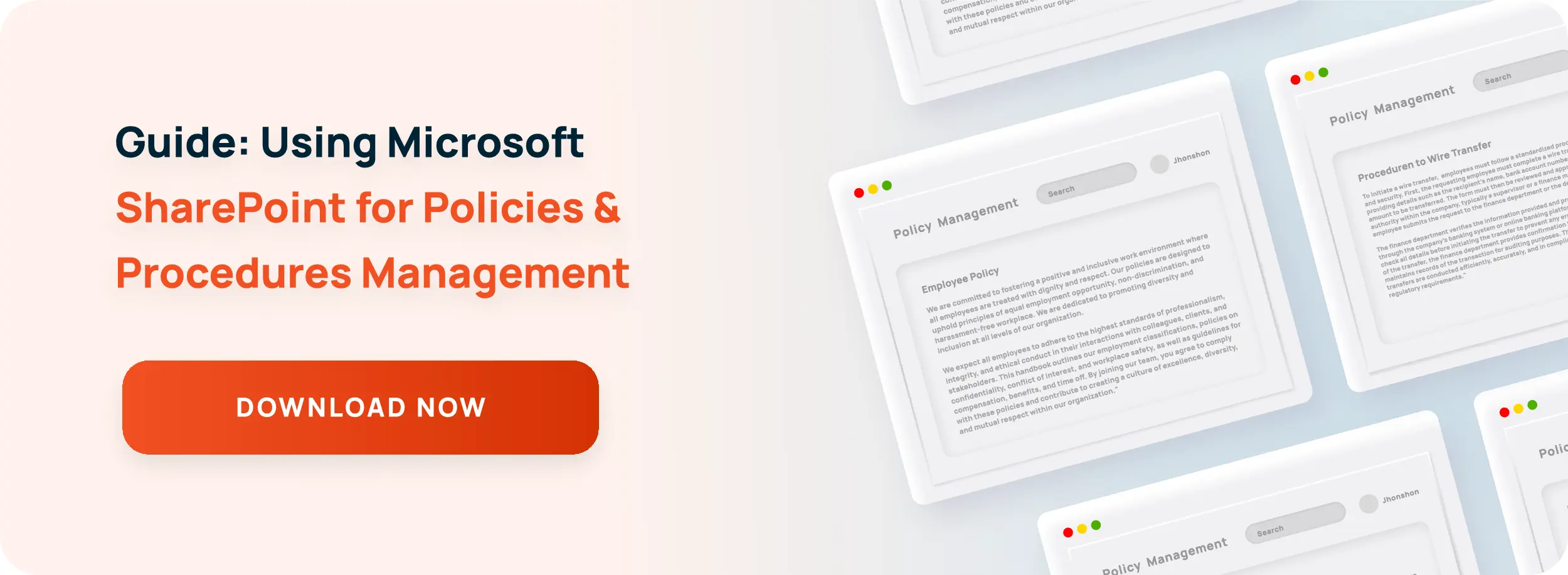The Dangers of Only Having Policies & Procedures

It’s easy to understand why many companies will settle for the achievement of having policies and procedures in place, waiting for their auditors to let them know when it’s time for an update:
The creation of company policies and procedures is a complex challenge. Documenting the respective tasks, responsibilities, and accountability while ensuring compliance to all relevant legislation requires considerable attention to detail- especially if this is being done through multiple mediums. Communicating the importance to all employees of being compliant with those policies, and ensuring their understanding and commitment to performing procedures properly can be just as challenging. Regular reminders about the need for compliance and the benefits of risk mitigation can be helpful, but for many employees, policies and procedures will remain a paperwork headache that they could do without.
However, if you’re not devoting as much attention to the consistent implementation of your policies as you are to their creation, you may be putting your company at serious risk.
Learn how to manage Policies and Procedures on Microsoft 365 SharePoint by reading our guide: Leveraging Microsoft Office 365 for Policies And Procedures Management
Culpability
To put it bluntly, policies and procedures aren’t worth the paper they’re written on if they’re not put to use. Enron, for example, had a 64-page code of ethics that was completely sidestepped in one board of directors’ decision as the company went on to become one of the worst examples of corporate malfeasance in US history.
The Federal Sentencing Guidelines for Organizations (FSGO) that are enforced by the US Federal Sentencing Commission take a very explicit stance on the issue of implementation. FSGO monetary penalties can reach as high as a figure that is deliberately calculated to impose a so-called death penaltyon any company found guilty of unethical corporate conduct. Calculation of the penalty begins with a base fine that is the greater of the monetary gain made by the company or the loss to victims caused by the unethical conduct. A culpability score that is designed to be reflective of the degree of guilt involved then multiplies this figure.
The size of the culpability score can be increased by aggravating factors such as willful obstruction during the process or evidence of prior misconduct. It can also be decreased by mitigating factors such as self-reporting your unethical conduct and, most importantly, clear evidence of utilization of an effective program to prevent and detect such conduct. Past cases have shown that having a program in place but not using it can actually count against you if that purchase is perceived as an attempt to conceal your true intent to engage in fraudulent behavior.
Leverage
As your company grows, the creation of new policies and procedures along with the ongoing revision and updating of existing documentation can quickly consume resources. Tracking document versions on spreadsheets and share drives, along with maintaining access privileges to those drives, can easily let consistent implementation slide to the back burner.
Related Article: Policy Management – Damage Control: A Free Guide to Getting Back on Track after Non-Compliance
Using a Policy Lifecycle Management Software solution can enable you to leverage policy and procedure templates in document creation, and facilitates the audit, review, and revision processes needed to keep those policies and procedures current, as well as ensuring your employees have received them, can locate them when they need to, and have read and understood them.
But again – this must be something that is utilized and not held in place simply to cover your bases. Using a system that is tightly integrated into your existing framework can increase adaptability and reduce your culpability by showing your effort in placing policies and procedures compliance at the forefront of your company’s priorities.
ConvergePoint is the leading provider of compliance software solutions on the Microsoft SharePoint platform.Compliance products offered include Policy Management Software , Contract Management Software , Conflict of Interest Disclosure and Employee Health and Safety Training Management Software .

